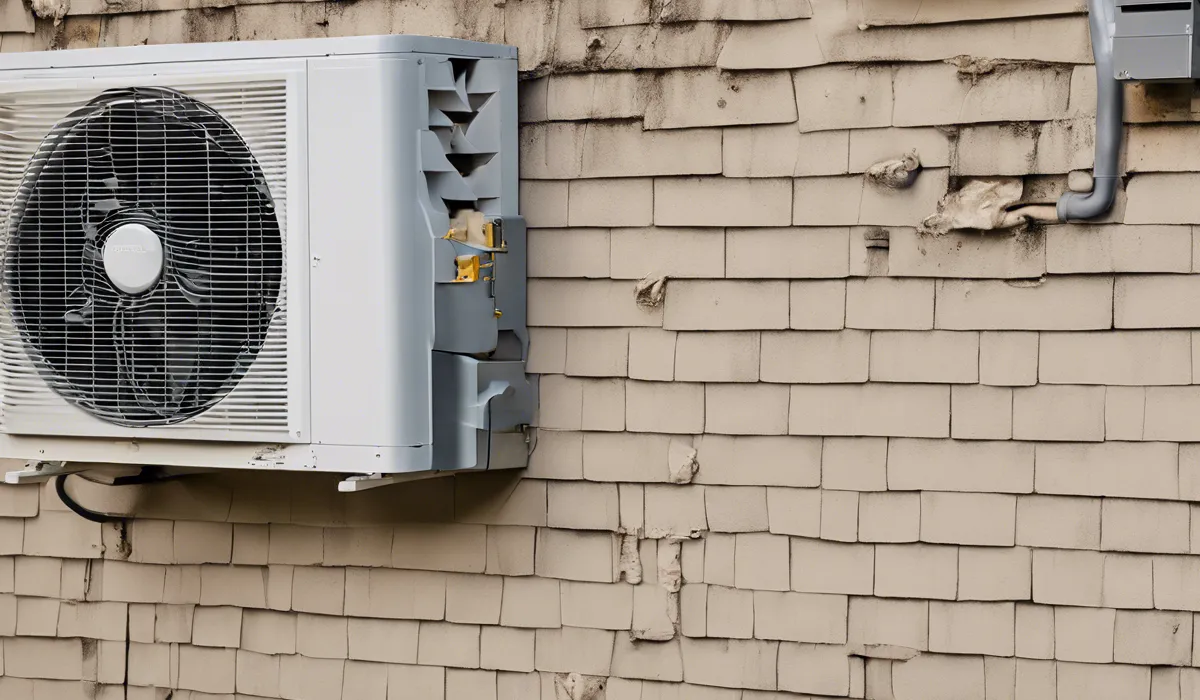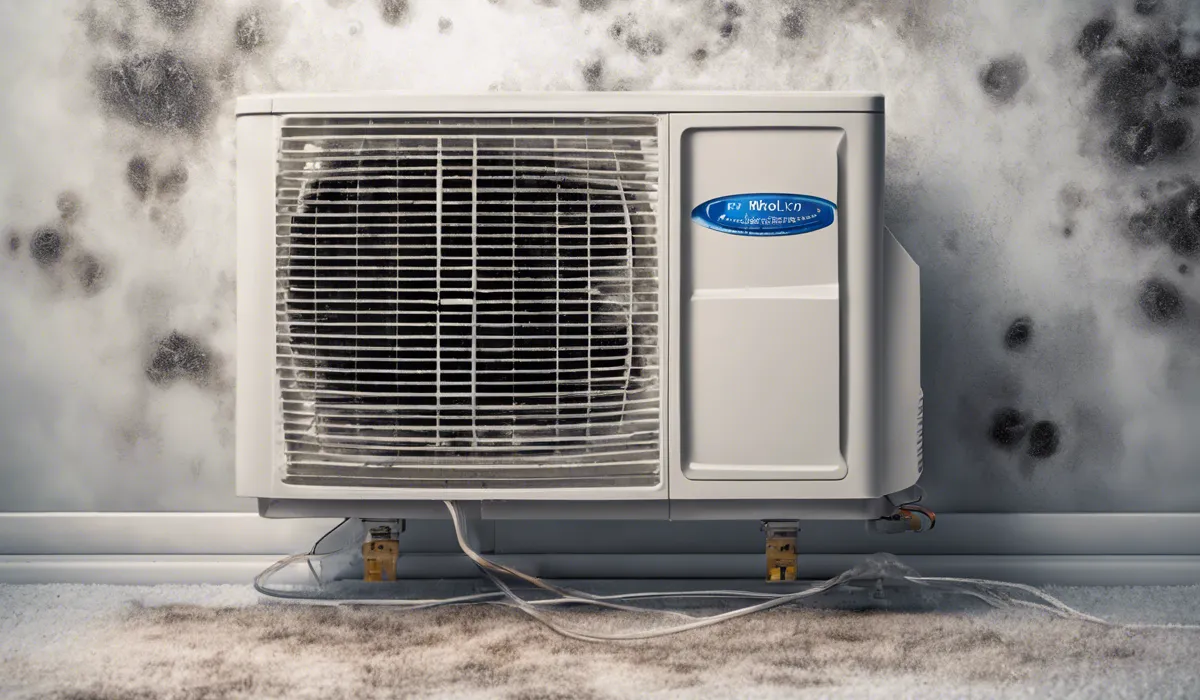Mold in an AC unit can be dangerous as it may cause respiratory issues and allergic reactions when spores are dispersed into the air.
It’s essential to clean mold from AC units promptly to ensure indoor air quality and health safety.
Understanding Mold in AC Units

What is Mold?
Mold is a type of fungus that can grow both indoors and outdoors. It appears as patches of black, white, green, or even colorful spots.
Mold thrives where there is moisture and reproduces by releasing tiny spores that are invisible to the naked eye.
These spores can be harmful when inhaled, which is why it is essential to keep mold out of places like your air conditioning system.
Optimal Conditions for Mold Growth
Mold needs specific conditions to grow. In AC units, mold finds the perfect environment due to the presence of moisture from condensation, warmth from the unit’s operation, and darkness within the enclosed spaces.
This combination creates a breeding ground for mold, which can affect the air quality in your home.
Common Mold Types in AC Units
Several types of mold can grow in AC units. Cladosporium, Penicillium, and Aspergillus are among the most common.
Each type of mold has its characteristics, but all can be harmful to your health and should be removed swiftly.
Spread of Mold in Air Systems
When mold grows in an AC unit, it can easily spread throughout your home via the air system. As the AC blows air, it can also distribute mold spores.
These spores can then be inhaled by anyone in the home, leading to potential health risks.
Health Risks Associated with Mold Exposure

Immediate Health Effects of Mold
Short-term exposure to mold can lead to allergic reactions like sneezing, runny nose, and itchy eyes.
It can also trigger asthma attacks and cause irritation of the skin, eyes, nose, and throat. These symptoms can be especially severe in individuals who are sensitive to mold.
Long-Term Health Consequences
Long-term exposure to mold can have more serious health implications. It can lead to respiratory conditions and may even weaken the immune system, making it difficult for the body to fight off infections.
This is particularly concerning for people with chronic lung illnesses.
Groups Most at Risk
Children, the elderly, and individuals with pre-existing health conditions like asthma or allergies are more vulnerable to mold exposure.
Their bodies may react more severely to the presence of mold, and they should be protected from exposure as much as possible.
Recognizing Symptoms of Mold Exposure
Be vigilant for symptoms indicating mold exposure, such as persistent coughing, wheezing, or difficulty breathing.
If any of these symptoms appear, especially after spending time in air-conditioned environments, it may be a sign that there is mold present.
Prevention and Remediation Strategies

Proactive Measures to Prevent Mold
Keep your AC unit mold-free by ensuring proper maintenance, such as regular servicing and cleaning.
Controlling humidity levels within your home is also crucial. Use a dehumidifier if necessary to keep humidity below 50% to discourage mold growth.
Detecting Mold in Your AC Unit
Mold can manifest as a musty smell or visible spots on the AC vents or drip pans. If you notice these signs, or if the air quality in your home seems to decline, it could indicate mold growth within the AC unit.
Steps to Take Upon Finding Mold
If you find mold, turn off your AC unit to prevent further spore spread. Clean visible mold with a mixture of water and detergent, but do not use bleach as it may not prevent the mold from returning.
If the mold is extensive, you may need to replace certain parts of the AC unit.
When to Seek Professional Help?
If the mold issue is widespread or if you are unsure about handling it yourself, call a professional.
Experts in mold remediation can ensure that the mold is removed safely and that your AC system is restored to a safe operating condition.
FAQs About Mold in AC Units
Is mold in an AC unit a health risk?
Yes, mold in an AC unit can be a health risk as it may cause respiratory issues, allergic reactions, and other health problems when mold spores are released into the air.
Can mold in air conditioners make you sick?
Yes, exposure to mold in air conditioners can make individuals sick, particularly those with allergies, asthma, or weakened immune systems.
Should I clean or replace my AC unit if I find mold?
It’s essential to clean mold from an AC unit promptly. However, if the mold infestation is severe, it may be more practical to replace the unit.
How can I prevent mold in my AC unit?
To prevent mold, regularly maintain and clean your AC unit, ensure proper drainage, and keep the humidity in your home at appropriate levels.
What are the signs of mold in an AC unit?
Signs of mold in an AC unit include a musty odor, visible mold growth, and symptoms of mold exposure such as coughing or sneezing when the AC is running.
Final Thoughts
Mold presence in AC units poses a significant health risk by potentially causing respiratory problems and allergic reactions. The dispersal of mold spores through the air underscores the urgency of addressing mold infestations promptly to maintain indoor air quality and protect occupants’ health.
